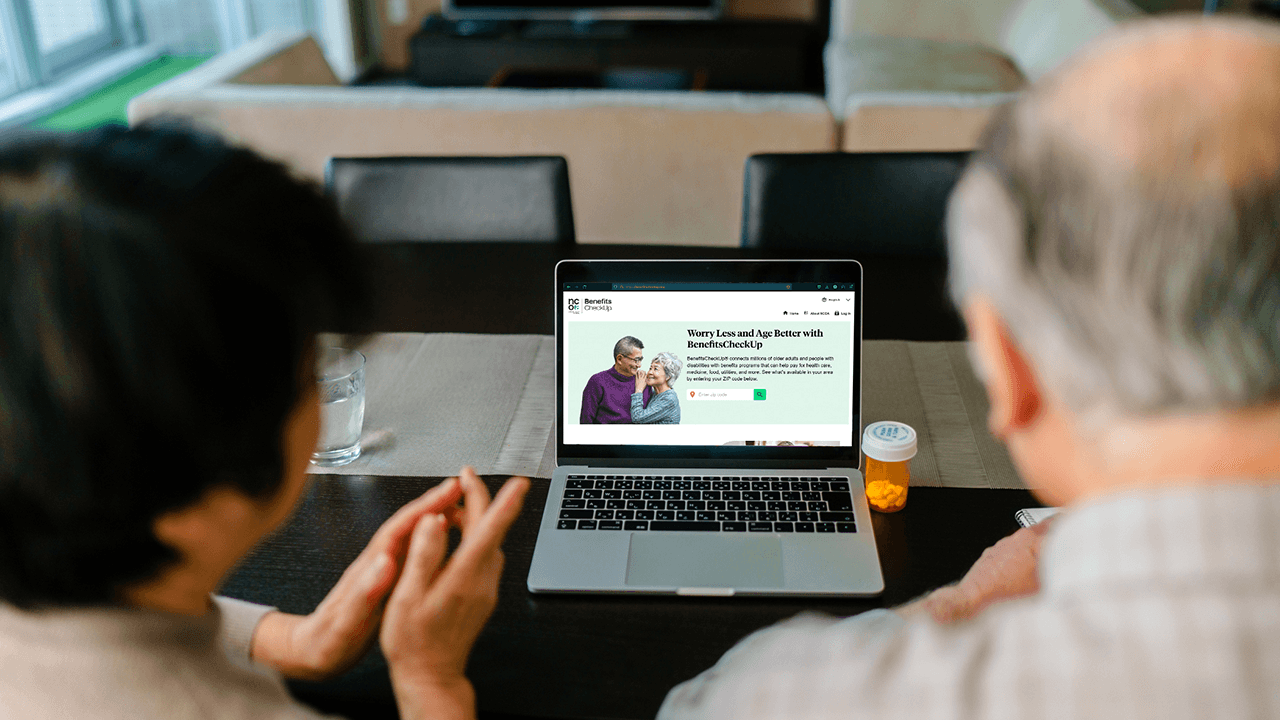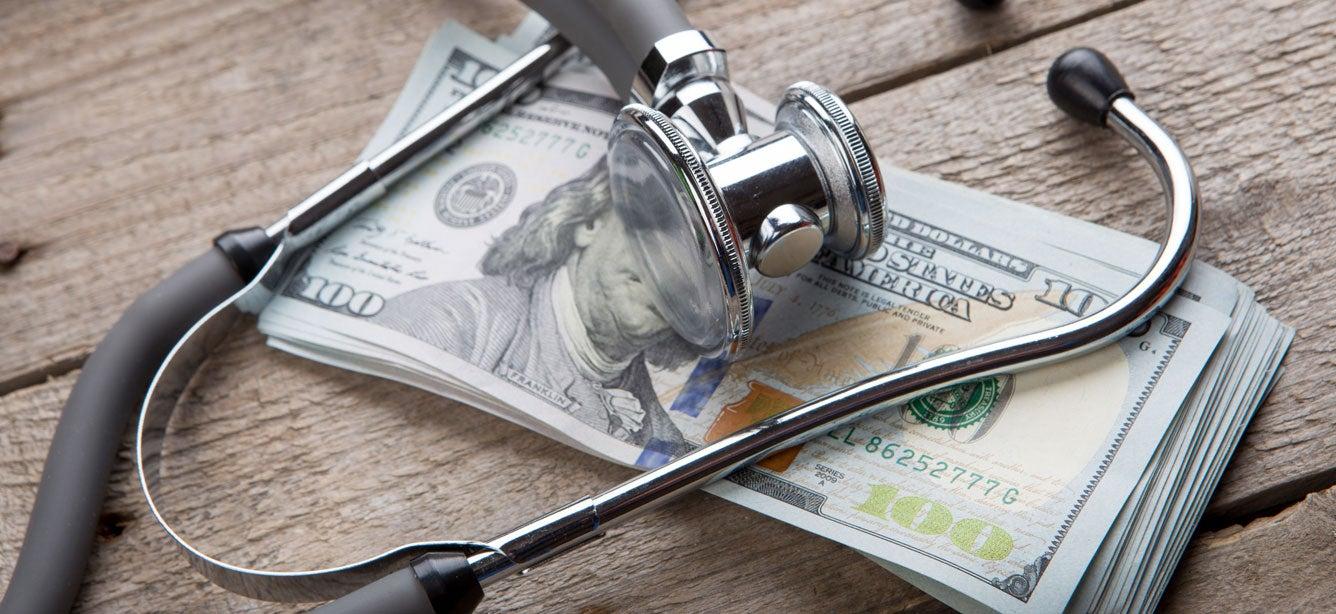
Related Topics
What is LINET? It’s a vital financial safety net for certain limited income people who don’t have prescription drug coverage. And it’s a program that Mrs. M could have benefitted from had she known about it sooner.
Like many older adults in the United States, this 88-year-old Alabama resident lives with several chronic health conditions—including atrial fibrillation (AFib) and hypertension (high blood pressure).
Fortunately, the medications she takes to manage these conditions are quite effective. Unfortunately, they’re also prohibitively expensive. As a widow living on a low fixed income, Mrs. M often faced the impossible choice between paying for her prescriptions or buying groceries.
“This is a common situation that’s only getting worse,” said Kathleen Cameron, former Senior Director of NCOA’s Center for Healthy Aging. “Drug costs in this country already are higher than nearly anywhere else,” she explained, “and continued inflation adds to the financial strain.”
In fact, according to a recent survey of Americans age 65 and older, more than 1 in 5 (20.2%) reported cost-related medication nonadherence last year.1 “This means people are skipping their pills, breaking them in half, or not filling their prescriptions to begin with because they can’t afford them,” Cameron said. Further, more than 13% of survey respondents reported foregoing basic needs, like Mrs. M., or going into debt in order to pay for their medications.1
This can be true despite having prescription drug coverage through Medicare Part D or a private plan, Cameron explained. That’s because each plan varies in cost and the drugs it covers—and both can change from year to year. On top of that, more than 9% of Medicare-eligible people are not enrolled in a prescription drug plan at all.2 Others who have signed up for coverage, but whose benefits haven’t yet kicked in, also can face insurmountable costs in the time between.
If you find yourself in this situation, you absolutely should not suffer in silence,” said Cameron. “There are a variety of financial assistance programs that can help you pay for your medications if you’re eligible.”
Mrs. M discovered financial relief through the Medicare Part D Low Income Subsidy (LIS), commonly known as “Extra Help.”
LINET is short for the Limited Income Newly Eligible Transition Program, or Limited Income NET. The purpose of the program is to bridge the gap between Medicare enrollment and prescription drug plan enrollment. Certain people who qualify for Extra Help—like Mrs. M—and who otherwise couldn’t afford their medications can receive temporary coverage through LINET.
Could you be eligible for LINET? Let’s take a look.
What is the Limited Income Newly Eligible Transition Program, or LINET?
Established by the Centers for Medicare & Medicaid Services (CMS) in 2010,3 and administered exclusively by Humana, LINET offers immediate, short-term prescription drug coverage for low-income Medicare beneficiaries.
“So, if you’re Medicare-eligible, but you’re not enrolled in a drug plan, the Limited Income NET Program can help you pay for the medications you need,” Cameron explained.
You must meet certain guidelines to qualify for LINET, and benefits are temporary—typically lasting 1-2 months.4 This generally covers the time it takes to choose and sign up for a Part D plan that meets your needs or—if you do not select one yourself—for Medicare to automatically enroll you in a benchmark plan. (Such plans describe prescription drug coverage whose premiums are lower than what your state usually charges and that are covered by Extra Help).
Who qualifies for LINET?
In order to receive LINET benefits, you first must be a permanent U.S. resident who is eligible for Medicare. Then, you must:4
- Be eligible for the Medicare Part D Low Income Subsidy (“Extra Help”); and
- Have both Medicare and Medicaid coverage (be dual-eligible); or
- Have both Medicare and Supplemental Security Income (SSI); or
- Have Medicare and qualify for a Medicare Savings Program (MSP); or
- Have applied for Extra Help through Social Security and received your Notice of Award
You also currently can’t be enrolled in any prescription drug plan, including those provided by:4
- Medicare Part D
- Retiree drug subsidy (RDS)
- Veterans Affairs coverage
And one other important thing to note, advised Cameron. As mentioned above, Medicare will automatically sign you up for a drug plan if you receive Extra Help—unless you specifically tell them not to. If you choose to opt out of this auto-enrollment, you will not be eligible for LINET.
Can LINET be retroactive for Medicare Part D?
Yes, in certain situations. If you retroactively qualify for either Medicaid or SSI, then LINET will pay for your prescription drugs for the same prior months that you were eligible for these programs but were uncovered, up until your benefits begin.5
How does this work? You submit a claim, and Humana reimburses any medication costs incurred during eligible LINET periods.
What medications are on the LINET formulary?
Humana LINET includes all Medicare Part D drugs except those restricted or excluded from coverage by federal law.4,6
Currently excluded drugs include but are not limited to:
- Adipex-P, Suprenza (phentermine)
- Belviq (lorcaserin)
- Bontril PDM (phendimetrazine)
- Didrex (benzphetamine)
- Diethylpropion
- Latisse (bimatoprost)
- Levitra (vardenafil)
- Regimex (benzphetamine)
- Qsymia (phentermine and topiramate)
- Staxyn (vardenafil)
- Stendra (avanafil)
- Viagra (sildenafil)
Some other restrictions apply as well, mostly having to do with safety concerns. For example, LINET coverage for some medications may carry a specific supply limit even if your prescription is for longer. A pharmacist can help you figure this out.
Do I have to use a specific LINET pharmacy?
No. You may visit any pharmacy. Simply bring your prescription and Medicare I.D. number with you, and the pharmacist will submit a claim to Humana LINET on your behalf. LINET will reimburse the pharmacy directly; you will not have to pay anything at the counter.
How do I sign up for LINET?
If you’re eligible for the program (see “Who qualifies for LINET?” above), you automatically receive benefits. This happens in one of three ways:7
- Medicare enrolls you (you will receive an official letter from CMS in this case)
- You visit a pharmacy with an immediate prescription drug need
- You submit a receipt to Humana LINET for retroactive prescription reimbursement
Be sure to read our companion article, Navigating LINET, for a step-by-step guide to getting and using these benefits. For expert answers to specific questions, you may also call Humana LINET customer service at the following phone number: 800-783-1307 (TTY: 711). Representatives are available Monday – Friday, 8 a.m. to 7 p.m. Eastern time.
Not sure whether you qualify for LINET?
Far too many older adults in the United States can’t afford their prescriptions—which places a serious financial burden on those who struggle to pay for basic necessities. That’s why CMS created the Medicare Limited Income NET Program (LINET). The purpose of this temporary program is to help eligible enrollees without a drug plan afford their medications on a short-term basis. If you’re eligible for Medicare Extra Help and meet certain other requirements, you may automatically qualify for LINET.
Not sure whether you qualify for Extra Help? Your State Health Insurance Assistance Program (SHIP) can help. These federally funded programs provide free, impartial advice for Medicare-eligible people and their families. Here, you can get assistance applying for Extra Help, Medicare Savings Programs (MSPs), and other benefits. To find your SHIP, call toll-free 1-877-839-2675 or visit the SHIP website.
Sources
1. Stacie B. Dusetzina, PhD, et al. “Cost-Related Medication Nonadherence and Desire for Medication Cost Information Among Adults Aged 65 and Older in the US in 2022.” JAMA Network, May 18, 2023. Found on the internet at https://jamanetwork.com/journals/jamanetworkopen/fullarticle/2805012
2. Wafa Tarazi, et. al “Medicare Beneficiary Enrollment Trends and Demographic Characteristics.” U.S. Department of Health & Human Services. Assistant Secretary for Planning and Evaluation Issue Brief, March 2, 2022. Found on the internet at https://aspe.hhs.gov/sites/default/files/documents/f81aafbba0b331c71c6e8bc66512e25d/medicare-beneficiary-enrollment-ib.pdf
3. Centers for Medicare & Medicaid Services. Medicare Limited Income NET Program. Found on the internet at https://www.cms.gov/medicare/enrollment-renewal/part-d-plans/low-income-subsidy/medicare-limited-income-net-program
4. Humana. LINET – Beneficiary Resources. Found on the internet at https://www.humana.com/member/medicare-linet-beneficiary-resources
5. Centers for Medicare & Medicaid Services. Medicare’s Limited Income NET (LINET) Program for People at the Pharmacy Counter. Found on the internet at https://www.cms.gov/files/document/11328-p-limited-income-net-people-pharmacy-counter.pdf
6. Humana. Pharmacy News Bulletin: Limited Income NET (LINET) Program. Found on the internet at https://docushare-web.apps.external.pioneer.humana.com/Marketing/docushare-app?file=2625285
7. Centers for Medicare & Medicaid Services. The Limited Income Newly Eligible Transition (LINET) Program. Found on the internet at https://www.cms.gov/Medicare/Prescription-Drug-Coverage/LimitedIncomeandResources/Downloads/11429.pdf




